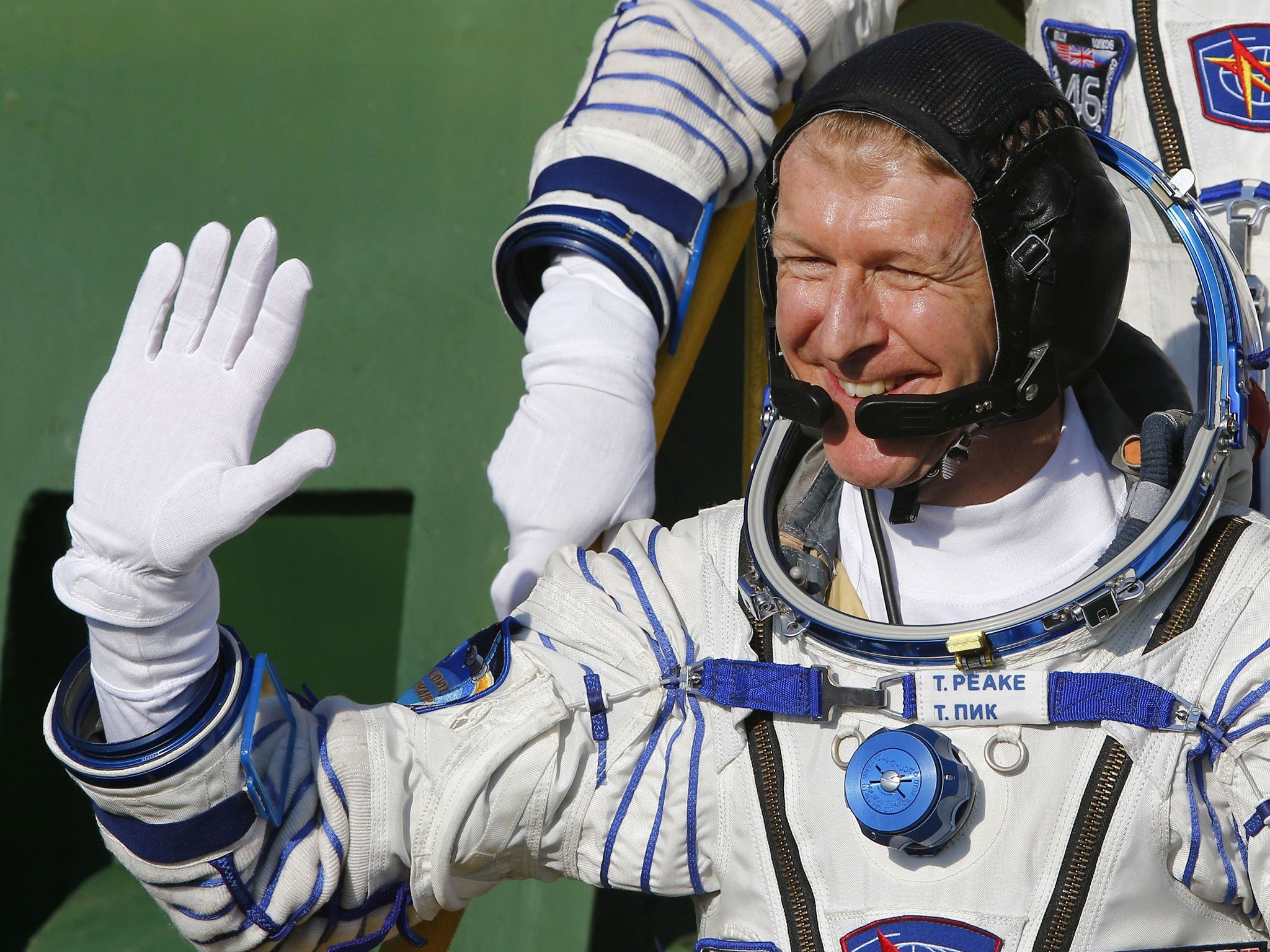We're all proud of Tim Peake - but we shouldn't have to denigrate a woman's achievements at the same time
The media has wriggled and squirmed and been at pains to explain exactly why Peake was the first ‘official’, or in one memorable report ‘proper’, British person in space - as opposed to Helen Sharman, who visited the Mir space station in 1991

Your support helps us to tell the story
From reproductive rights to climate change to Big Tech, The Independent is on the ground when the story is developing. Whether it's investigating the financials of Elon Musk's pro-Trump PAC or producing our latest documentary, 'The A Word', which shines a light on the American women fighting for reproductive rights, we know how important it is to parse out the facts from the messaging.
At such a critical moment in US history, we need reporters on the ground. Your donation allows us to keep sending journalists to speak to both sides of the story.
The Independent is trusted by Americans across the entire political spectrum. And unlike many other quality news outlets, we choose not to lock Americans out of our reporting and analysis with paywalls. We believe quality journalism should be available to everyone, paid for by those who can afford it.
Your support makes all the difference.History was made yesterday. Tim Peake became the second fully-fledged Briton to embark on a space mission.
Major Tim Peake’s achievements are impressive by any measure, he’s a flipping astronaut for goodness sake! They don’t hand out that kind of prize in the Christmas raffle. He’s the first Brit aboard the ISS – which is momentous. And for equality’s sake, we’d better mention that he’s a loving husband and father too. We don’t know how he’ll cope without hair products in space, but let’s face it, he’s no slouch.
He wasn’t the first Briton in space, though. That honour actually goes to Helen Sharman, who flew to the Mir space station in 1991. Not that you’d necessarily have realised that as a casual observer of the news reports yesterday. But it’s important to remember, because after all, what’s wrong with simply being the first man to go into space under the Union flag?
When women climb, leap, run or slog it out and into the record books, we celebrate their achievements with pride. We never feel like that pride is dented because a man did it first. It’s a great honour to be recognised as the first woman to do X, Y or Z.
So why, when a clamour of voices on social media pointed out that the first Briton in space was actually Sharman, and why was no one talking about her, were they met with such a strange response?
It felt like media organisations could easily have referred to Peake as the first British man (to hold full, not dual citizenship, that is) in space – which let’s face it, is a pretty big deal.
But instead, they wriggled and squirmed and were at pains to explain exactly why he was the first ‘official’, or in one memorable report ‘proper’, British person in space. As if Sharman somehow didn’t go into real space. She just went into some kind of woman version of space. Mir space station? Pah! It’s probably pink and covered in vaginas. It’s not proper, man space.
We have a real problem celebrating a man’s achievements when a woman’s done it first. Is it because those situations are actually very rare? Hobbled by social and cultural expectations throughout history, many of the ‘first women’ did them against extremely high odds.
When Bobbi Gibb became the first woman to run the Boston Marathon, she disguised herself in her brother’s clothes and hid in a bush to join the race, unable to register officially as women weren’t deemed physiologically capable of running that distance. That was in 1966.
Is this why we have to cough and struggle and find a reason why Tim Peake is really the first proper and official Brit in space, rather than just celebrating the fact that he’s the first man? Because when a woman does something truly amazing, it’s often in spite of their gender, so it’s somehow embarrassing that a man didn’t get there first? Or are some male egos just so fragile that they simply find it easier to celebrate a woman doing something amazing safe in the knowledge that a man did it before her? It’s easier to be charitable in victory, after all.
It’s time we called bullshit on this kind of rhetoric. It in no way denigrates what Peake has achieved to call him by what he is, the first man to go into space as a full British citizen under the Union colours. But it does denigrate the achievements of Sharman to make out that, well, we didn’t pay for her to go, so she’s sort of the first Brit in space but not really, because someone else funded that mission and here are some other minor details to add in which make her totally unofficial and not British.
In many ways, the glamour and excitement surrounding space travel, space fiction and space rhetoric is as ‘masculine’ as you can get. Maybe that’s also why we prefer to forget that Britain’s first full citizen to travel there was a woman. Perhaps we think that Major Tim, with his calm stoicism, quiet British manliness, and amusing sound-a-like-ability to the subject of a Bowie song, is simply the British space hero we, as a nation, deserve.
But we shouldn’t forget. And we should be able to celebrate the first men to achieve the extraordinary.
So cheers Major Tim, the first man in space under the British flag. And the second ‘proper’ person who went up there to wave it for us.
Join our commenting forum
Join thought-provoking conversations, follow other Independent readers and see their replies
Comments